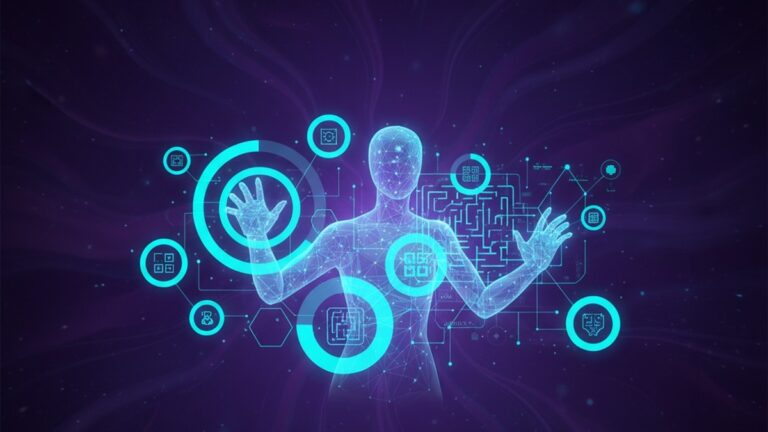In an era where artificial intelligence (AI) is reshaping the hiring landscape, human resources (HR) departments are grappling with a new challenge: a deluge of applications that are polished to perfection, yet often lack genuine substance. As technology advances, applicants have increasingly turned to AI tools to craft their resumes and cover letters, resulting in documents that may look impressive but don’t always accurately reflect the applicant’s true abilities. Enter blockchain technology, which is emerging as a potential solution to this conundrum by providing verifiable identity credentials that could help HR professionals separate fact from fiction.
AI’s Impact on the Hiring Process
AI has revolutionized the way job applications are crafted. With tools that can generate well-written resumes and cover letters at the touch of a button, candidates can present themselves in an exceptionally favorable light. While this has democratized the application process to an extent, allowing individuals to present their best selves, it has also led to an increase in applications that are more style than substance.
HR departments are now tasked with sifting through a mountain of applications, many of which are crafted with AI’s help. This has made it more challenging than ever to discern which candidates truly possess the skills and experiences they claim to have. The sheer volume of applications can also overwhelm HR teams, leading to potentially qualified candidates being overlooked.
Blockchain as a Game-Changer
Blockchain technology, best known as the backbone of cryptocurrencies like Bitcoin, offers a promising solution to this problem. At its core, blockchain is a decentralized and immutable ledger that can store data securely. When applied to identity verification, it allows individuals to store their credentials—such as degrees, certifications, and work history—in a way that’s tamper-proof and verifiable.
By using blockchain-based identity systems, applicants can provide potential employers with credentials that are not just self-reported but have been independently verified and recorded on the blockchain. This ensures that the information presented in job applications is accurate and trustworthy, reducing the risk of embellishment or fraud.
Balancing Innovation with Privacy
While blockchain offers significant advantages in verifying credentials, it’s not without its challenges. One of the primary concerns is privacy. Storing personal information on a blockchain raises questions about data security and the potential for misuse. To address these concerns, blockchain identity solutions must incorporate privacy-enhancing technologies that allow individuals to control who has access to their data and under what conditions.
Moreover, the implementation of blockchain technology in HR processes requires significant investment and a shift in the way organizations handle data. Companies would need to adopt new infrastructure and train HR personnel to work with these systems, which could be a barrier for some businesses, especially smaller ones with limited resources.
Real-World Applications and Future Prospects
Despite these hurdles, several companies and educational institutions have started exploring blockchain for credential verification. For instance, the Massachusetts Institute of Technology (MIT) has been issuing blockchain-based digital diplomas, allowing graduates to share their verified credentials with employers easily. Similarly, some tech firms are piloting blockchain solutions to streamline the hiring process and ensure the authenticity of applicant information.
The potential of blockchain to transform HR processes is significant. By providing a reliable way to verify skills and experiences, blockchain can help HR professionals focus on candidates’ true capabilities rather than just their ability to craft an impressive application. This, in turn, could lead to more informed hiring decisions and a workforce that’s better matched to the demands of their roles.
A Balanced Path Forward
As the HR field continues to evolve in response to technological advances, it’s essential to strike a balance between embracing innovation and safeguarding privacy. Blockchain-based identity solutions present a compelling opportunity to enhance the hiring process, but they must be implemented thoughtfully to protect individuals’ rights and ensure equitable access.
For employers, staying ahead of the curve by adopting new technologies can give them a competitive edge in attracting and retaining top talent. Meanwhile, job seekers can benefit from a more transparent and efficient application process that recognizes their genuine skills and achievements.
In conclusion, as AI continues to influence the way applications are crafted, blockchain technology offers a beacon of hope for HR professionals seeking to navigate this new landscape. By providing verifiable proof of skills over artificial eloquence, blockchain could redefine the future of hiring, making it both transparent and fair. Whether this technology becomes a standard part of the hiring toolkit will depend on how well it addresses the challenges of privacy, cost, and accessibility in the coming years.

Steve Gregory is a lawyer in the United States who specializes in licensing for cryptocurrency companies and products. Steve began his career as an attorney in 2015 but made the switch to working in cryptocurrency full time shortly after joining the original team at Gemini Trust Company, an early cryptocurrency exchange based in New York City. Steve then joined CEX.io and was able to launch their regulated US-based cryptocurrency. Steve then went on to become the CEO at currency.com when he ran for four years and was able to lead currency.com to being fully acquired in 2025.


